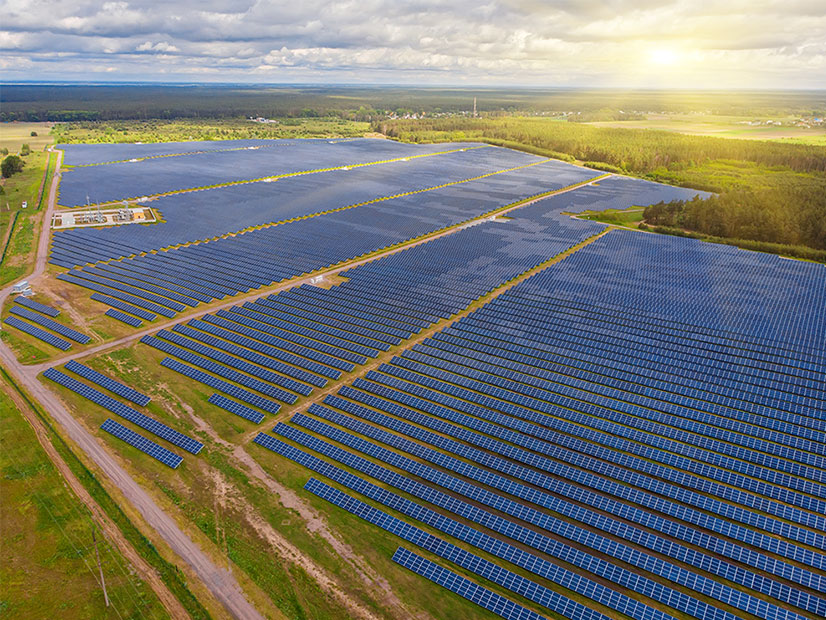FERC responded to ISO-NE’s request for rehearing on its Order 2222 compliance Friday, agreeing to delay the required timing of implementation while providing a clarification about the responsibility and role of distributed energy resource (DER) aggregators and utilities in providing ISO-NE with metering information and data (ER22-983-002).
Order 2222 directed RTOs and ISOs to remove barriers for aggregations of DERs to participate in wholesale markets. ISO-NE filed its initial compliance in February 2022, and FERC partly accepted and rejected it in March 2023. (See FERC Gives ISO-NE Homework on Order 2222.) ISO-NE requested a rehearing at the end of March.
A significant portion of FERC’s order Friday focused on its requirement that DER aggregators be responsible for reporting the necessary metering information to their respective RTO or ISO. In ISO-NE’s compliance filing, the organization proposed to task the host utility — which refers to either a transmission owner or a distribution utility — with this responsibility.
“Shifting the meter reporting role for [DER aggregations] to the DER aggregator would treat DERAs differently from all other resources participating in New England Markets and place them at a disadvantage relative to all other resources,” ISO-NE wrote in its March request for rehearing.
ISO-NE also interpreted FERC’s order in March to require the exclusion of host utilities from the flow of metering information from the DER aggregator to the RTO. ISO-NE argued that because host utilities typically are in charge of metering, giving the responsibility to the DER aggregator while excluding the utility from the process would be difficult to implement and would require new infrastructure and tariff changes.
In its response to the rehearing request, FERC maintained that the DER aggregator is responsible for providing metering information to ISO NE.
The commission said it disagreed with the “underlying interpretation upon which ISO-NE bases its rehearing request” and said Order 2222 “does not preclude metering data coming from or flowing through the host utility.”
“Metering data may come from or flow through distribution utilities if ISO-NE coordinates with distribution utilities and relevant electric retail regulatory authorities to establish protocols for sharing such metering data and explains how such protocols minimize costs and other burdens and address concerns raised with respect to privacy and cybersecurity,” the commission wrote.
FERC said this clarification would preclude the need for the significant metering changes and burdens highlighted by ISO-NE in its rehearing request.
Also in Friday’s order, FERC sustained part of the March order directing ISO-NE to explain or alter its measurement requirements for some classes of behind-the-meter DERs.
Time Change
In ISO-NE’s initial compliance filing in 2022, the RTO wrote that it would need a response from FERC no later than Nov. 1, 2022, to include distributed energy capacity resources (DECRs) in Forward Capacity Auction (FCA) 18, which is scheduled for 2024 affecting the 2027/28 capacity commitment period. Since FERC did not make a determination until March 2023, ISO-NE argued in its rehearing request that it should not be required to include DECRs in FCA 18.
FERC accepted this request Friday, noting ISO-NE has proposed a new effective date that would require DECRs to be included in FCA 19.
Commissioner Christie’s Dissent
Commissioner Mark Christie dissented with Friday’s order, as he did with the commission’s order in March regarding ISO-NE’s compliance filing.
“Today’s order represents yet another example demonstrating that Order No. 2222 has created nothing short of an incomprehensible quagmire bearing a substantial price tag that will inevitably add to the rising power costs already faced by consumers,” Christie wrote.
He expressed his concern that the order does not adequately address ISO-NE’s concerns and will require “yet another return to the drawing board for ISO-NE and its market participants.”
Christie added that the order “uses the ‘clarification’ as a sword to dispense with the rehearing request, but also as a shield from providing substantive explanation on how this ‘clarification’ addresses each of ISO-NE’s problems and concerns.”




